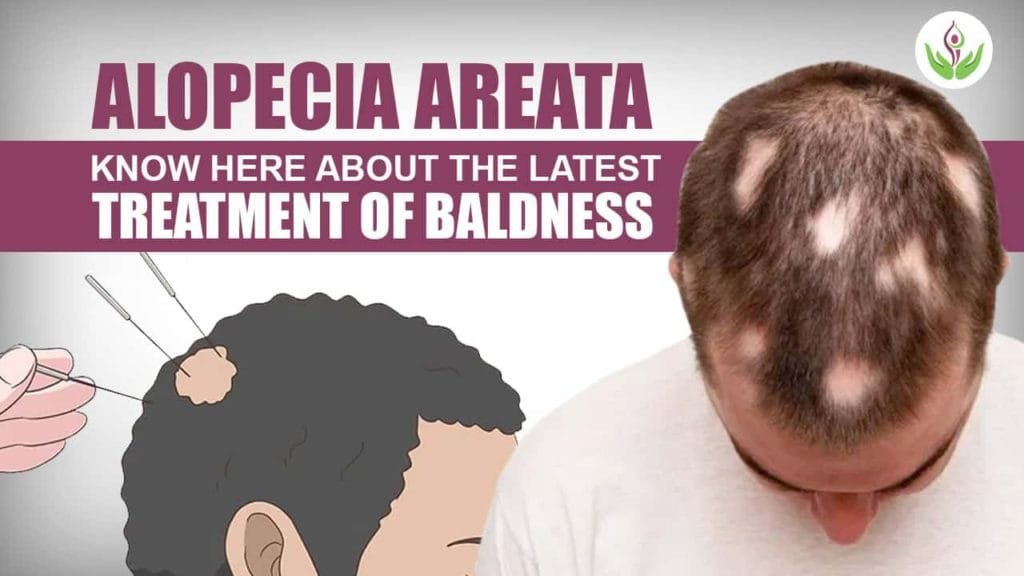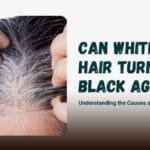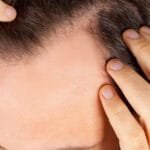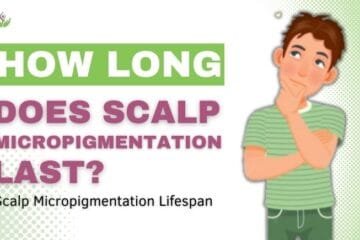We love our hair to the utmost and we think that it is our hair that defines our look. Hence, we put a lot of effort to maintain it well. At times, despite following proper hair care guidelines, there will be a sudden patchy hair loss on your head.
It is high time to know about alopecia then. However, the glad news is that there are many of 2024 latest treatments available to reduce hair fall problems and promote quicker regrowth of hair. Keep reading to know what exactly it is and how our varied treatments help you.
What is Alopecia Areata?
Alopecia areata (AA) is a common form of alopecia characterized by patchy hair loss involving both the scalp and/or body. This autoimmune condition (where your immune system attacks its own healthy cells) can occur at any age where both males and females are equally affected.
Autoimmune diseases can occur due to reduced levels of antioxidants. However, alopecia is highly prevalent between 30 to 59 years of age. Nearly one in five people with alopecia has a family member affected by this problem. It develops all of a sudden over the course of very few days.
There are slight differences between varied types of hair loss:
- Alopecia androgenetic – This type of hair loss occurs commonly among males due to hormonal variation, especially a high level of testosterone.
- Telogen effluvium – This type of hair loss is common among females and occurs due to stress or nutritional deficiencies.
- Alopecia totalis – Extensive hair loss on the scalp
- Alopecia Universalis – Extensive hair loss on the entire body
What Causes Alopecia Areata?
Usually, hair growth undergoes three stages of the hair cycle:
- Anagen, or an active growth phase
- Catagen or an involution phase
- Telogen or a resting phase
In normal individuals, hair falls after the telogen phase when new hair growth starts. This stage is called the exogen phase.
In individuals with alopecia, the hair falls well before the anagen phase starts. Hence, the hair follicle will be left empty. This stage is called the kerogen phase, where there is a disorder in the hair cycle.
If you are having alopecia areata, your immune system attacks your own hair follicles. Hence, they become shorter and stop hair production, which may lead to hair loss eventually. Researchers are clueless about the exact cause of this disease.
However, genetics and environmental factors may contribute to its development. Alopecia areata usually occurs in those who have a family history of autoimmune conditions like rheumatoid arthritis and type 1 diabetes.
Most Common Cause of Alopecia
At times, physicians may confuse the symptom of hair loss with fungal infections. Hence, they check the hair portion visually with the help of magnifying glasses. Alopecia areata appears as sharp and smooth demarcated, round patchy hair loss with ‘exclamation point hairs’ or ‘club-shaped hairs’ on the edge of the patches.
Furthermore, physicians recommend a trichoscopy test to determine the intensity of patchy hair loss. Your physician may also recommend a scalp biopsy test to rule out other fungal infections like tinea capitis. A blood test might be performed in case if your physician suspects any other autoimmune condition.
Moreover, alopecia areata affects both fingernails as well as toenails. These gradual changes will become the initial sign that this condition is developing. There are many other small changes that occur in your nails as listed below:
- The appearance of pinpoint dents, followed by white-colored spots and lines
- Nails will become rough and lose their shine
- Thinning of the nails followed by their split
How to Treat Alopecia Areata?
- OTC (Over the counter) Medications – Minoxidil (Rogaine) can be applied twice every day in bald areas. It will take a year to see the outcomes. It works for people who have limited alopecia areata.
- Corticosteroids – All this while, the physicians opted for the traditional treatment such as corticosteroid injection into the affected areas to help hair regrow on bald areas. This hair fall treatment can be repeated every 1-2 months for hair regrowth. Steroids are also sold as lotions, foams, as well as ointments. Remember that this steroid treatment remains less effective in the case of patients with alopecia Universalis. According to the 2018 review article titled, “Alopecia areata: Review of epidemiology, clinical features, pathogenesis, and new treatment options” published in the International Journal of Trichology, a study demonstrated that 62 percent of patients received full hair regrowth by undergoing systemic steroid treatment [1].
- DPCP – Nowadays, physicians recommend DPCP (diphencyprone), a chemical contact sensitizer that stimulates hair growth by creating irritation. Luk et al. [5] Investigated the safety and efficacy of diphenylcyclopropenone (DPCP) in Chinese patients with alopecia areata. They were resistant to steroids but showed a good response in the majority of patients.
- Immunotherapy – Diphencyclopropenone and Squaric acid dibutyl ester are used as immunotherapeutic agents to treat alopecia. The response rate varies between 9% to 87%.
- Targeted phototherapy – Excimer laser which was used to treat vitiligo can treat alopecia areata.
- Oral mini-pulse (OMP) therapy – According to the 1996 research article published in the Indian journal of dermatology, Venereology, and leprology [2], OMP therapy works very well for patients with alopecia areata where it should be administered for a longer duration. The patients can see a complete regrowth of the hair throughout the scalp within three months and there will be no side effects. Hence, the physicians recommend its administration 2-3 times every month.
- JAK inhibitors – Though these JAK inhibitors are costly, they can effectively prevent and reverse alopecia areata. It also works effectively in cases of extensive hair loss. Tofacitinib, baricitinib, and ruxolitinib are grouped under JAK inhibitors.
- According to 2016 research studies, tofacitinib is considered a safe and effective treatment for severe alopecia areata condition. These inhibitors dramatically improve the quality of life by showing significant results within week 16. They can be administered orally or topically [3,4].
- Other treatments include ozone therapy and high-dose multivitamin therapy. Vitamins such as biotin and vitamin D can effectively promote hair growth. Cyclical nutritional vitamin therapy achieves safe and consistent hair regrowth by promoting and strengthening hair roots [6].
To know more about these recent therapies in detail, watch the below-listed videos:
The Wrap-Up
Are you ready to get rid of the alopecia problem in 2024? Our Care Well Medical Centre in Delhi is proud to offer all the above-listed treatment modalities as a standalone service or as a combination therapy in high-dose multivitamin treatment.
This combinational cosmetic treatment showed significant improvement when compared to traditional methods like steroid treatment.
Schedule a direct consultation today with our highly skilled medical experts at Care Well Medical Center, to know more about the areas to be treated, and how our various above-listed treatment procedures can help you achieve fuller hair growth.
Additionally, we offer a customized latest baldness treatment plan that accomplishes your aesthetic goals in a cost-effective way.
References
- Darwin E, Hirt PA, Fertig R, Doliner B, Delcanto G, Jimenez JJ. Alopecia Areata: Review of Epidemiology, Clinical Features, Pathogenesis, and New Treatment Options. Int J Trichology. 2018;10(2):51-60. doi:10.4103/ijt.ijt_99_17
- Pasricha JS, Kumrah L. Alopecia totalis treated with oral mini-pulse (OMP) therapy with betamethasone. Indian J Dermatol Venereol Leprol. 1996 Mar-Apr;62(2):106-9. PMID: 20947995.
- Anzengruber F, Maul JT, Kamarachev J, Trüeb RM, French LE, Navarini AA, et al. Transient efficacy of tofacitinib in alopecia areata Universalis. Case Rep Dermatol. 2016;8:102–6.
- Kennedy Crispin M, Ko JM, Craiglow BG, Li S, Shankar G, Urban JR, et al. Safety and efficacy of the JAK inhibitor tofacitinib citrate in patients with alopecia areata. JCI Insight. 2016;1:e89776.














